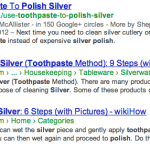
In many respects, the startup culture is glamorous and exciting, but it is also a lot of hard work, and the harsh reality is that many businesses fail. You may have a fantastic product or service that you truly believe in, one that can solve issues and improve things – but is it enough to make it successful? Is there a sound when a tree falls in the forest? In terms of marketing, the answer is no.
Startups must become known in order to reach their target customers, which is where marketing, particularly digital marketing, comes in. You can’t make any money if you don’t sell yourself. However, if you’re a startup, every dollar matters, so you want to make sure your marketing is on point. You can do an online digital marketing course that will help you learn tips and tricks of digital marketing that you can apply to your business.
This is fantastic news for startups: it wasn’t long ago that reaching audiences meant spending a lot of money on TV and radio ads with little ability to target, whereas now you can use pay-per-click advertising, A/B testing, and a variety of other exciting tools to make digital marketing work for you, better understand and engage your customers, and measure, monitor, and improve your startup marketing efforts to drive your success.
Best digital marketing tips for startups
-
Your startup needs a digital marketing plan
You could be thinking to yourself, “So, how do I get started with digital marketing for my startup?” It’s not just a case of trying out a few Facebook/Snapchat ads to see how they perform.
Don’t perform your digital marketing haphazardly or in silos; the importance of digital marketing in your startup’s growth should not be overlooked, but it should also be part of a digital marketing strategy that is connected with an overall strategic marketing plan with specified goals and objectives.
Rather than participating in all channels and marketplaces regardless of efficacy, you should examine what channels and markets to participate in, according to Big 4 advisory company McKinsey.
-
Strategically engage in social media.
First and foremost, you almost definitely do not need to be on every platform. You only have so much time and money, so make the most of it. Of course, no two businesses are alike, so we can’t tell you what would work for you in a simple blog; but, think about your target customer profiles, where they spend their time, and where they’re more likely to be responsive to your message. To create a social media strategy you will need to learn social media marketing which will help you get a better understanding of the topics.
In general, places like Snapchat, Instagram, and Tiktok are great if your product is B2C, visually appealing, and appealing to the under-30s; whereas LinkedIn marketing is more expert and B2B in nature; and Facebook has been used to great effect by B2c but it can be fantastic for B2B as well.
Depending on the media, the way you market the same firm and its products and/or services might seem very different, therefore modify your “voice” properly.
-
Obtain knowledge
Digital marketing gives entrepreneurs a lot of power when it comes to figuring out consumer insights, segmentation, and, most importantly, what works for whom. This might occasionally provide unexpected effects! You can discover that your products or services resonate with unexpected markets, fall flat where you anticipated them to prosper, and so on, by employing digital for segmentation, A/B testing, and analytics. It’s not only about user acquisition channels to reach audiences; it’s also about conducting consumer research.
So let your imagination go wild. Test different demographics and psychographics with similar ads to determine who converts. Try fine-tuning your messaging in areas where it isn’t working. To motivate the appropriate audiences to take the correct action, test, respond, pivot, and test again.
-
For the victory, search engine marketing
In contrast to SEO (Search Engine Optimization), which pays off in the long run but takes time to get started, search engine marketing is particularly enticing in the early phases of a business since you can receive immediate results. As an early-stage company, effective SEM is terrific for low-hanging fruit and rapid victories, which is fantastic for your bottom line.
You may also quickly access a highly focused and qualified audience that is currently searching for phrases that are related to what you do without having to pay a fortune.
You may start with a little budget, end when it’s convenient for you, and utilize the data and insights acquired from your SEM campaigns to better future ads. After all, you can tell pretty quickly if the campaign you’re doing currently is effective in terms of reach and returns; you can also know pretty quickly if it’s not working properly.
You can then target, test, react, modify, alter your targeting, and test again, all while learning more about your client and kicking even more objectives.
You may start with a little budget, end when it’s convenient for you, and utilize the data and insights acquired from your SEM campaigns to better future ads. After all, you can tell pretty quickly if the campaign you’re doing currently is effective in terms of reach and returns; you can also know pretty quickly if it’s not working properly.
You can then target, test, react, modify, alter your targeting, and test again, all while learning more about your client and kicking even more objectives.
-
Make SEO work in your favor.
If you do a fantastic job of promoting your brand, your marketing efforts will ultimately pay off, and inbound leads will come to you – rather than attracting people to you, you’ll be discovered naturally. This boils down to SEO: establishing a connection with Google based on your Expertise, Authority, and Trust through a mix of smart, high-quality link-building and the creation of relevant content that gives value to users.
Fresh material is vital, so blog on a regular basis. But don’t simply blog for the sake of blogging or for the Google bots – produce stuff that people will like reading, about topics that they will search for, and get it picked up by (again, related) websites to earn authority.
Different sorts of content will be more effective in various sectors. If you’re in the B2-B sector, case studies and white papers may be very valuable to your audience; if you’re in the B2C space, your audience may prefer videos that demonstrate how successful your product is, product reviews, and so on. It’s worth looking at what some of your most successful rivals are doing and conducting some reverse engineering – don’t copy, but be inspired! Learn SEO by doing an Online SEO course which will help you get an idea of how to optimize your content and website.
To Conclude,
The simple part of starting a business is getting it off the ground. The most difficult component to master is the process of preserving it.
You’ll almost certainly meet difficulties and setbacks. However, operating a business entails certain risks. Even yet, if you have the necessary abilities and information, you may prevent them from occurring.
When it comes to marketing your small business, these pointers will undoubtedly assist you in devising effective techniques. Your success, however, will be determined by your choices.
Author’s Bio

Karan Shah
Founder and CEO at IIDE
Karan Shah is an Edu-preneur, Tedx speaker, Harvard alumnus specializing in eCommerce, and the founder of IIDE – The Digital School.
He is a reputed author on the topics of education, digital marketing, and Ed-techs. Over the years he has penned a plethora of articles in leading news outlets such as Entrepreneur, BusinessWorld, Education Times, and Youth Magazine to name a few.










